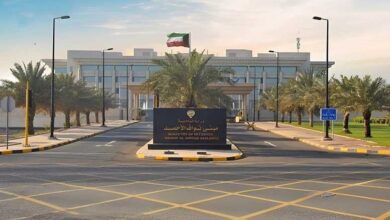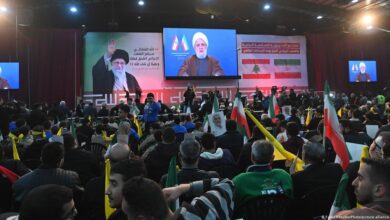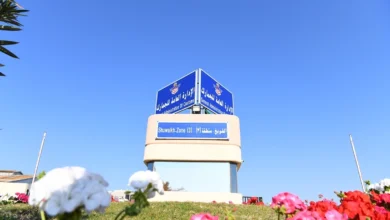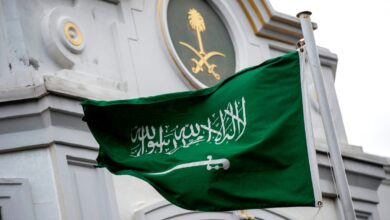Kuwait and Saudi Arabia pursue shared goals and interests under visionary leadership

By Tareq Yousef AlShumaimry
As the Kingdom of Saudi Arabia celebrates its 94th National Day on 23 September, we in Kuwait rejoice along with our Saudi brothers and sisters on the historical significance of this day.
Saudi Arabia’s National Day is historic not only to the people of the Kingdom, but to all Arabs and Muslims around the world, as it was on this day in 1932 that King Abdulaziz ibn Saud, the founder of modern Saudi Arabia, proclaimed through a royal decree the unification of the Kingdoms of Najd and Hejaz to form the Kingdom of Saudi Arabia. The unification is of great significance as it brought guardianship of the two holy cities of Mecca and Medina to the House of Saud, which has propelled the development of the two cities to the benefit of Muslims everywhere.
Even before the establishment of the Kingdom of Saudi Arabia, people in Kuwait shared several commonalities, including historical, social and cultural ties, as well as kin relationships, with the Saudi people. Today’s sovereign states of Kuwait and Saudi Arabia are only a continuation, evolution and institutionalization of historical realities.
In the modern era, the leaderships of both countries have worked to strengthen these relations, with the result that today there is significant cooperation between the two nations in various fields, and they move forward together with a clear vision for a prosperous future, security and prosperity for their two nations and people.
In June 1961, the Kingdom of Saudi Arabia supported Kuwait’s independence by establishing the first diplomatic representation there. The Saudi envoy to Kuwait was among the first ambassadors to present credentials to the new sovereign state of Kuwait. Saudi Arabia also endorsed Kuwait’s membership of the United Nations and the Arab League.
In a further sign of the brotherly relations, the Custodian of the Two Holy Mosques King Salman bin Abdulaziz Al-Saud emphasized the need for increased cooperation with Kuwait, which manifested in the Saudi Cabinet approving the establishment of the Saudi-Kuwaiti Coordination Council in 2017, which then swiftly won approval from the Kuwaiti Cabinet.
The establishment of the Council, which is based on the mutual desire to develop relations in all fields, has over the past many years supported bilateral work and joint efforts.
Prince Mohammed bin Salman bin Abdulaziz Al-Saud, the current Crown Prince and Prime Minister of Saudi Arabia, has further propelled these relations through his first visit as the Saudi Crown Prince to Kuwait in September 2018. The visit strengthened the longstanding ties between the two brotherly nations.
In December 2021, the Crown Prince visited Kuwait again, and a joint statement was issued to enhance mutual cooperation in direct investment in both countries, and to work to increase investment exchange opportunities, unify efforts, overcome obstacles, and provide investment opportunities between the two countries in health, tourism, food security, and human development, with a specific focus on the youth sector and women’s empowerment.
The two countries are working together to boost trade and mutual investment, focusing on projects related to Saudi Vision 2030 and Kuwait Vision 2035, and on bolstering GCC economic integration.
The visit of His Highness the Amir of Kuwait Sheikh Mishal Al-Ahmad Al-Jaber Al-Sabah to Saudi Arabia, immediately after assuming leadership of Kuwait, was proof of the appreciation he has for the Custodian of the Two Holy Mosques and for the Crown Prince, as well as a testimony to the two countries strong bonds.
His Highness the Amir’s visit to Saudi Arabia immediately after taking office indicated his commitment to further boosting bilateral relations in various fields, and emphasized the shared views of the leadership of the two countries on regional and international issues of mutual concern, as well as the keenness of the leaderships to boost the mutual interests of Kuwait and Saudi Arabia for the well being of people in both nations.
Today, Saudi Arabia is a key player in global peace and stability efforts, and has solidified its economic and political influence, both regionally and globally. The Kingdom is also playing a leading role in resolving regional and international conflicts and holding negotiations aimed at maintaining global peace.
The Kingdom’s growing regional and global influence can be attributed to its wise leadership, their clear vision, and commitment to international law, all of which have strengthened the Kingdom’s standing in the global community.
On the economic front, Saudi Arabia is today the largest economy in the Middle East and holds the second-largest oil reserves globally, making it the world’s leading oil exporter. Despite its oil supremacy, the Kingdom has been steadily reducing its dependence on oil revenues, by significantly developing the non-oil sector in the country. Non-oil revenues have grown significantly in recent years and now account for 52 percent of the Kingdom’s GDP
The clear vision of the leadership has also enabled the Kingdom to achieve 87 percent of its ambitious Vision 2030’s targets that aim to transform the country. The success of Saudi Arabia’s 2030 Vision is evident in several areas, including the tourism sector, which reached 100 million visitors ahead of schedule, with a new goal set at 150 million.
As Saudi Arabia celebrates its National Day, the strong ties between Kuwait and the Kingdom continue to flourish, driven by mutual respect, shared goals, and a commitment to regional stability and prosperity.

Tareq Yousef AlShumaimry, served as Chairman of the Finance Committee and Chairman of the General Budget Committee of the Permanent Court of Arbitration in The Hague (PCA) and an observer in the Administrative Council of the Court and the Consular at International Court of Justice (ICJ) and the Embassy of the State of Kuwait in the Netherlands during this period from 2013 to 2020.
Email: tareq@alshumaimry.com













